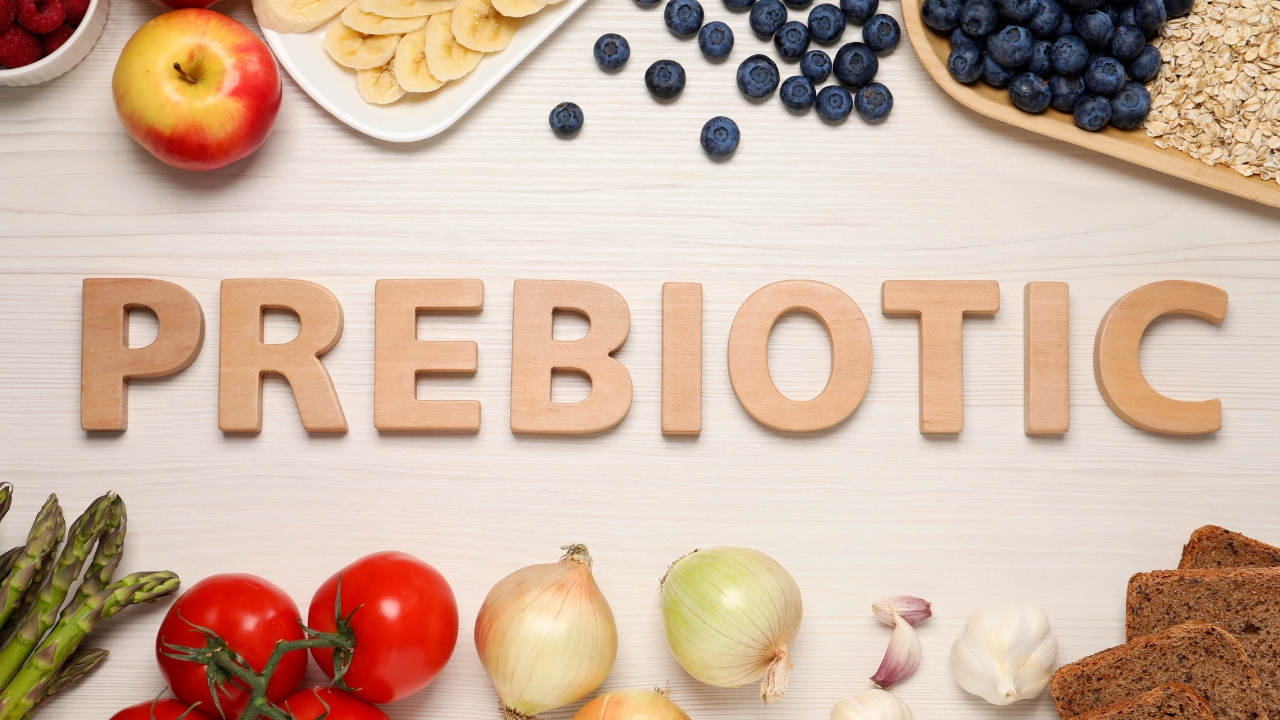Introduction
Trans fat has been the subject of a lot of controversy and debate over the past few years, for well-founded reasons. In the field of nutrition and health, it’s essential to comprehend the effects of trans fats on our health. This extensive study aims to uncover the truth behind trans fats, shed some light on the source of trans fat as well as its impact on health, identify food items to stay clear of, and offer practical strategies for making better dietary decisions.
Understanding Trans Fats
Trans fats, also known as trans fatty acids, are unsaturated fats that are present in both natural and synthetic versions. Contrary to saturated fats, trans fats aren’t only found in animal products; they are also produced by the industrial process of hydrogenation. The process involves adding hydrogen to liquid vegetable oils in order to make them stronger, thus prolonging the shelf life and durability of specific foods.
The Origins of Trans Fat
In order to understand the significance of trans fats, it is essential to discover the origins of these fats. Trans fat gained traction during the first half of the 20th century to replace saturated fats. At first, it was viewed as being healthier and more nutritious. Trans fat found it’s way into a vast variety of processed food items, which led to the development of convenience foods as well as snack foods that are packaged. Margarine, baked goods and fried items became the most common foods that contain trans fat.
Health Implications of Trans Fats
Studies have revealed a clear relationship between the consumption of trans fats and negative health effects. Contrary to other fats, trans cholesterols do not just increase low-density lipoprotein (LDL), which is also known as “bad” cholesterol levels; they also decrease high-density lipoprotein (HDL), which is also known as “good” cholesterol levels. These two effects significantly increase the chance of developing cardiovascular diseases such as heart attacks and strokes. In addition, the consumption of trans fats has been linked to inflammation of the body, insulin resistance and other metabolic issues.
Identifying Foods High in Trans Fat
To make well-informed choices with regard to the food we consume, it’s important to know the products that are rich in trans fat. Foods that are processed and packaged, like confectionery, commercial bakery food items, and fried foods, are all common sources of trans fat. It is essential to read nutrition labels because trans fats may be identified under various names, like partially hydrogenated oil. If they are aware of foods’ labels, individuals are able to take an active approach to reducing the amount of trans fat they consume.
Foods to Avoid
Reduced consumption of trans fats requires taking note of the varieties of foods likely to be contaminated with this harmful fat. Fast food, commercially baked goods, and certain margarines tend to be rich in trans fat. However, choosing fresh, non-processed food items, cooking at home and incorporating healthier fats, such as olive oil or avocados, are good ways to create an overall diet that supports wellbeing.
Government Regulations and Trans Fat Bans
Conscientious of the health hazards that are associated with the consumption of trans fats Numerous countries have enacted rules to restrict or even eliminate their use in the food industry. Certain regions have banned the use of artificial trans fats completely. The purpose of these regulations is to safeguard public health by reducing the amount of trans fat in food products.
Making Healthier Choices
If you are looking to live an improved lifestyle, reducing or eliminating your consumption of trans fats can be an important option. A diet high in fruits and vegetables, as well as whole grains and protein sources that are lean can improve general cardiovascular health. Making wise choices when choosing cooking oils and avoiding processed food items can also have an impact.
The Role of Nutrition Education
To live better health Nutrition education is an essential function. Knowing the subtleties of fats, such as the differences between saturated, unsaturated and trans fats, enables people to make educated choices concerning their eating habits. Initiatives to educate about nutrition at school or workplaces as well as within communities could contribute to establishing community awareness of the effects of trans fats on our health.

Alternatives to Trans Fat in Food Production
Since awareness of the risk to health associated with trans fats has increased, the food industry has reacted with alternative options. A lot of food producers are rewriting their offerings to replace trans fats with healthier ones. This is not just good for consumers, but it also demonstrates the importance of the food industry in contributing to the health of our nation. Oils like olive oil, canola oil, and other oils made from plants are becoming increasingly used as substitutes for other oils, encouraging healthier choices for your heart.
The Global Effort Against Trans Fat
The fight against trans fats is not limited to individual preferences as well as national guidelines. In recognition of the worldwide impact of heart diseases, groups like that of the World Health Organization (WHO) have initiated initiatives to remove trans fats from our food chain. The focus of these initiatives is collaboration between industries, government agencies, and health and medical organizations to form one front against the health risks that come from the consumption of trans fats.
Check Out The Link uncover the truth behind trans fats
Personal Stories of Health Transformation
When you are on the path to better well-being, personal experiences may provide powerful motivation. The stories of people who successfully cut down on their intake of trans fats and improved their health may inspire others to implement positive changes. The stories will highlight the obstacles faced as well as the tactics employed, as well as the real benefits that have been experienced, which creates a sense of acceptance and inspiration for those following a similar journey.
The Future of Trans Fat Awareness
The future of awareness about trans fats appears positive. As more information is available and there is a greater examination of labels on food products and changing preferences for dietary choices, the market is seeing a rising need for better food choices. Since consumers are increasingly concerned about their health, food companies are likely to react by providing better information on the food ingredients and offering items that are in line with healthy selections.
Integrating Physical Activity
Though diet and lifestyle selections play an important role in the health of your heart, including regular exercise in your routine is just as vital. Fitness contributes to general well-being by helping you maintain a healthy weight, increasing circulation and improving cardiovascular health. Health holistically is about finding the right balance between healthy eating habits and fitness, which creates a base for a more healthy and active life.
Continued Research and Awareness
For our understanding of nutrition changes, continuing research is crucial to discovering fresh insights about the effect of our diet in terms of health. Continuous awareness programs, public health initiatives and research studies are essential to enhancing guidelines and suggestions to ensure an optimal diet. Becoming aware of and up-to-date with new research can help individuals and communities alter their habits so that they can improve their longevity and health.
Inspiring individuals to be more successful by Culinary Education
An effective method to help promote healthy eating habits is to provide culinary education. Instructing people on how to cook healthy meals at home will help them take charge of their eating habits. Programs that emphasize the use of whole, fresh ingredients and decrease the consumption of processed food items can help reduce trans fat intake as well as promote a lifestyle that encourages mindful eating.
Navigating Dietary Challenges
The decision to eat a balanced diet with less trans fat can pose a problem, particularly in an environment in which convenience and processed foods have become commonplace. It is crucial to recognize the challenges that lie ahead and offer feasible ways to overcome them. Food planning, making meals in bulk and experimenting with simple recipes can help people maintain a healthy diet when they live an active life.
Social and Cultural Influences on Dietary Habits
Food choices are usually deeply dependent on cultural and social environments. Being aware of the influence of culture on food choices could help make health messages more accessible to all groups. By recognizing cultural values and customs, health programs will be more inclusive, creating a sense of social assistance for people who want to change their food habits.
Promoting Public Health Policies
Public health advocacy that focuses on reducing trans fats is vital. Health organizations and governments have a key role to play in the formulation of policies that restrict the usage of trans fats within the food industry. These could include more stringent regulations as well as clearer requirements on labeling and awareness campaigns that make people aware of the dangers to their health that are associated with the consumption of trans fats.
Collaborative Initiatives for a Healthier Future
Combating trans fat calls for collaboration between different sectors, like government agencies as well as healthcare professionals, educators and the food industry. Collective initiatives allow for pooling resources, discussing the best practices and forming a unified face against the threats caused by trans fat. Through fostering partnerships that bring communities together to create a healthier environment for all,.
Incorporating Trans Fat Education into School Curricula
To encourage a change in generation to healthier eating habits and a healthier lifestyle, the integration of trans fat education in school curriculum is crucial. Informing children on the effects of trans fats on their health, and identifying the labels on food products, and making well-informed food choices gives them the tools they need to stay healthy for life. to maintain a healthy lifestyle. These initiatives help to create an environment of health and wellness, beginning at an early stage.

Staying Informed in the Digital Age
Today, thanks to the internet and digital information, keeping up-to-date with diets is easier than ever. Making use of online sources such as mobile apps and reliable websites can help consumers make better choices about their food choices. Social media can be used to provide reliable information, successful stories and practical advice to maintain a diet that isn’t high in trans fat.
Check Out The Link uncover the truth behind trans fats
The Role of Healthcare Professionals
Medical professionals, like dietitians, doctors and nutritionists, play a vital role in helping people make healthier choices for their lifestyles. Health check-ups regularly, individualized nutritional advice, and constant help are integral to the efforts of each individual to cut down on trans fats as well as improve cardiovascular health overall.
Continued Research for Innovations
Research continues to provide fresh insights about the role of nutrition in our health. The ongoing studies of fats, such as trans fats, help refine dietary recommendations as well as identify new ways to promote the health of your heart. Staying up-to-date with new findings allows people to modify their diet in accordance with the most recent scientific findings.
Building a Supportive Community
A supportive and welcoming community is crucial for people who want to change their eating habits. Initiatives in the local area, such as workshops on cooking, community gardens and events that focus on health, are able to create a sense of belonging as well as a shared dedication to a healthy lifestyle. Online peer support groups and communities provide a platform that allows individuals to exchange stories, swap tips and share milestones along their efforts to reduce trans fat consumption.
Sustainable and Ethical Food Choices
Beyond health-related considerations, the debate about trans fat should extend to the sustainability of food and sustainable choices. Promoting the use of locally produced, sustainable, and ethically produced foods is in line with an overall way of life. Making choices that minimize environmental impacts and encouraging the use of fair trade practices can contribute to a more mindful and ethical food culture.
Addressing Disparities in Access to Healthy Foods
Disparities and their recognition regarding access to nutritious foods are crucial to ensuring healthy outcomes for all. There are many areas where it is difficult to access healthy and fresh foods, which leads to the use of processed and unhealthful alternatives. Initiatives that are focused on increasing the availability of affordable and healthy foods in areas that aren’t well served could play an important role in decreasing the intake of trans fats as well as enhancing healthy cardiovascular health.
Culinary Innovation and Healthy Eating
Culinary innovations have the potential to alter the notion of healthy eating. Food scientists, chefs, and culinary professionals can come together to create tasty and delicious dishes that are free of trans fats and have high nutrients. In making healthier foods easier to access and more attractive, culinary innovations contribute to altering the norms of society as well as preferences for dietary options.
Corporate Responsibility in the Food Industry
The food industry, being an important player in influencing the way we eat, has significant accountability. The food industry can contribute to the elimination of trans fats by placing health at the forefront of product development, identifying ingredients in a transparent manner and conducting research to identify other healthier, alternative ingredients. Corporate social responsibility programs can show a greater commitment to the wellbeing of consumers as well as the entire society.

The Importance of Lifelong Learning
In the ever-changing field of health and nutrition, the need for continuous learning is essential. People should be inquisitive and open to changes in knowledge and make eating habits based on their evolving knowledge of science. Education campaigns, workshops and accessible resources are a great way to facilitate continuing learning that allows people to make informed choices in line with current health guidelines.
Personal Responsibility and Agency
As much as systemic improvements and social help are essential, personal accountability and autonomy remain the mainstays of an active lifestyle. Empowering individuals to take charge of their health is about creating a sense of empowerment and confidence in oneself. The education on trans fats and their impact, paired with tools that can help make healthier choices, empowers people to take an active role in their health.
Celebrating Progress and Success
Recognizing progress and accomplishments, regardless of how little, can be a crucial element of maintaining positive lifestyle modifications. Recognition and appreciation of accomplishments in cutting down on consumption of trans fats can provide motivation to continue working. Promoting a lifestyle that recognizes and acknowledges milestones in health is beneficial to the general well-being of people and emphasizes the importance of keeping an eating plan that is low in trans fat.
Conclusion
The final step is to discover the facts about trans fats. This is a complex and multifaceted process that involves communities, individuals, the food industry and policymakers. Through embracing education, social assistance, sustainable methods and personal accountability, it is possible to work in a collective way toward reducing the amount of trans fat consumed and improving cardiovascular health. In the face of the challenges of contemporary diets, we should create an environment that values health and wellness, promotes ongoing learning and appreciates positive actions taken toward an improved and healthier future.







